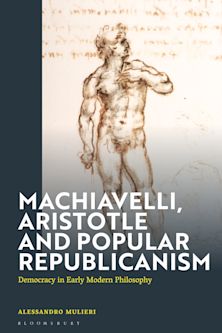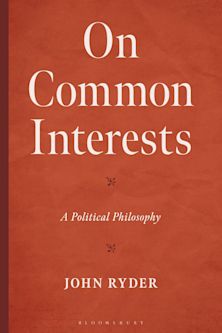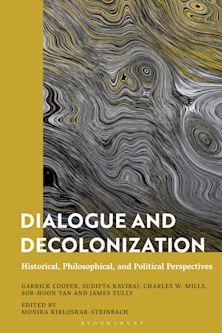- Home
- ACADEMIC
- Politics & International Relations
- Political Theory and Philosophy
- Carl Schmitt and the Intensification of Politics
Carl Schmitt and the Intensification of Politics
This product is usually dispatched within 3 days
- Delivery and returns info
-
Free US delivery on orders $35 or over
You must sign in to add this item to your wishlist. Please sign in or create an account
Description
This book explores Carl Schmitt's efforts to distinguish sources of sovereignty and political identity in an age of rapid and volatile social change. In Schmitt writings, Shapiro finds a dynamic conception of the relationship between political power and social form, organic traditions and their strategic deployment. As these writings indicate, the political constitution of a sovereign people involves the channeling of attachments and antagonisms of various kinds. The book explicates this process as it appears in changing contexts, following Schmitt's turn from Catholic politics to secular nationalism, and finally beyond the nation-state during and after the Second World War. These shifts in Schmitt's approach reflect a general intensification of politics as its grounds are rendered increasingly fluid and volatile by accelerated movements of finance, warfare and communication. The result is a both a transformation in the practice of government - requiring flexible and rapid adjustments to changes across the globe - and in the nature of legitimacy, whereby an ethos of belief grounded in relatively stable cultural and social rituals is supplanted by a more fluid and mobile pathos of identification.
Table of Contents
Chapter 2 Channels of Political Authority
Chapter 3 From Ethos to Pathos
Chapter 4 Globalization and Nihilism
Chapter 5 Carl Schmitt and the Intensification of Politics
Product details
| Published | Feb 16 2010 |
|---|---|
| Format | Paperback |
| Edition | 1st |
| Extent | 152 |
| ISBN | 9780742533424 |
| Imprint | Rowman & Littlefield Publishers |
| Dimensions | 9 x 6 inches |
| Series | Modernity and Political Thought |
| Publisher | Bloomsbury Publishing |
About the contributors
Reviews
-
Kam Shapiro makes the case not only that one can find a potentially fascist aesthetic in the work of Carl Schmitt, but also the material for a critical response to it, much as one might find a remedy in the illness itself. This is dangerous territoryand Shapiro guides us skillfully through it, never loosing his political and moral feet, while never yielding to a desire to score easy points. A final chapter places Schmitt in the company of the present conduct of American foreign policy - it is disturbing because it is an accurate picture.
Tracy B. Strong, Professor of Political Thought and Philosophy, University of Southampton
-
Theorists in political theory, anthropology, philosophy, and literary theory feel compelled to encounter Carl Schmitt again. Kam Shapiro's book, however, provides the most illuminating engagement I have seen. He uncovers the importance of the somatic in Schmitt's thought, how the acceleration of pace in contemporary life moves it back to the center of attention, the resonances between Schmitt and Rumsfeld, and, above all, ways to work through Schmitt to reach a place Schmitt himself avoided. This is a superb and timely book.
William E. Connolly, Johns Hopkins University, author of The Fragility of Things: Self Organizing Processes, Neoliberal Fantasies, and Democratic Activism
-
The author writes confidently and engagingly, successfully blending together careful exegesis, conceptual analysis, and intellectual biography....Highly recommended. Three-star review.
Choice Reviews
-
Kam Shapiro's Carl Schmitt and the Intensification of Politics provides a timely interpretation of a complex and original thinker. Exploring the full range of Schmitt's writings, the book's elegant and engaging style establishes beyond doubt that Schmitt has much to contribute to our understanding of a rapidly changing world. The careful exegesis also enables Shapiro to address pressing issues in contemporary international politics.
David Howarth, University of Essex
-
Kam Shapiro makes the case not only that one can find a potentially fascist aesthetic in the work of Carl Schmitt, but also the material for a critical response to it, much as one might find a remedy in the illness itself.
This is dangerous territory and Shapiro guides us skillfully through it, never loosing his political and moral feet, while never yielding to a desire to score easy points. A final chapter places Schmitt in the company of the present conduct of American foreign policy - it is disturbing because it is an accurate picture.Tracy B. Strong, Professor of Political Thought and Philosophy, University of Southampton


































